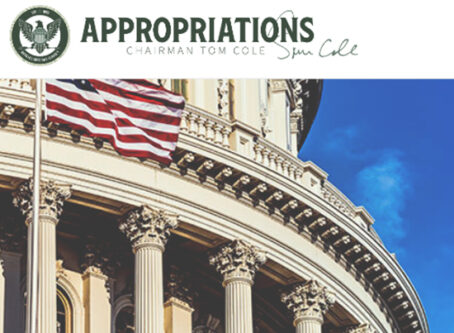Towing reform pursuits reach finish line in four states
At least four states have acted already this year to address unfair towing practices.
The changes are billed to create basic consumer protections from predatory towing and booting for truck drivers and motor carriers.
The Owner-Operator Independent Drivers Association has worked for years with states to establish regulations to protect truck drivers involved in a nonconsensual tow.
Tennessee
In Tennessee, Gov. Bill Lee acted in recent days to sign into law a bill that is touted to include comprehensive reforms to protect truck drivers and motorists from predatory towing practices.
Previously SB1692/HB1731, the new law limits booting to commercial lots. In such instances, a licensed parking attendant must be present and available to remove the boot within 45 minutes from “point of contact.”
The fee to remove a boot is capped at $75.
Additionally, if a tow is in process but the vehicle has not yet left the parking area, the towing company is required to release the vehicle to the owner for a fee not to exceed $100.
Another provision in the new law makes it illegal to boot or use a device to immobilize any truck and trailer that is clearly identified as a commercial vehicle with a USDOT number or with a commercial license plate.
The Tennessee Trucking Association said the new rule is intended to protect truck drivers from unlicensed individuals booting vehicles anywhere in the state.
“Several high-profile predatory towing incidents in Tennessee have exposed how this egregious practice not only disrupts our state’s supply chain but also costs truck owners thousands of dollars for each unwanted tow,” TTA President Donna England said in prepared remarks.
The statehouse action comes as a Memphis-area company, A-1’s Towing, has been the focus of controversial booting and towing practices.
The new rules take effect July 1.
Florida
Florida was the first state this year to act to address predatory towing.
The National Insurance Crime Bureau has reported the state is notorious for the practice.
Effective July 1, the new law requires counties to establish maximum rates that towers may charge for cleanup and disposal of hazardous and nonhazardous materials incidental to a nonconsensual tow. Cities also are permitted to enact such rates.
In areas without established maximum rates, rates set by the Florida Highway Patrol will be recognized.
Rates are required to be posted online. Counties, cities and the Florida Highway Patrol are mandated to establish a process for investigating and resolving complaints regarding fees charged in excess of such rates.
Additionally, towing and storage operators are mandated to maintain a rate sheet listing all fees related to vehicle recovery, removal or storage. A rate sheet must be posted at the place of business and must be provided upon request.
A rate sheet also must be made available at the scene of a tow to the owner or operator, if present.
Another addition to Florida statute mandates that a towing operator must allow inspection and release of the vehicle within one hour after the owner, lienholder, insurance company representative or agent provides specified documents during normal business hours at the site where the vehicle is stored.
Florida Trucking Association President Alix Miller said the new rules are “a huge victory” for trucking in the state. She added that the new law will “weed out the predatory towing tactics of bad actors and make the entire industry better and safer.”
Mississippi
Also in effect the first of July, a new Mississippi law addresses concerns about nonconsensual towing and charges for commercial vehicles.
The new law authorizes the creation of a commercial vehicle towing advisory committee within the Commercial Transportation Division of the Mississippi Department of Public Safety.
The new panel is responsible for establishing regulations for towing and recovery service providers. Statewide maximum towing and storage rates for nonconsensual tows also will be set.
Additionally, per-pound billing for nonconsensual towing is outlawed.
A resolution process also will be created for truck owners who dispute towing and recovery fees and charges. Additionally, the seven-member advisory committee is responsible to provide towing rates based on certain standards.
Disciplinary action against towing and recovery service providers also will be established.
Another provision forbids law enforcement officers to receive compensation or any other incentive to select a particular towing and recovery service from a tow list.
The Mississippi Trucking Association welcomed the rule changes.
MTA President Hal Miller described predatory towing as “an egregious practice that not only disrupts our state’s supply chain but also costs Mississippi truck owners thousands of dollars for each unwanted tow.”
Virginia
Virginia is another state to enact new rules intended to protect the public from predatory towing. Specifically, changes prohibit solicitation of towing.
As of July 1, the new law prohibits tow truck drivers and towing and recovery operators from solicitation or offering tow services in any manner, directly or indirectly, at the scene of any wrecked or disabled vehicle on a highway.
Violators would face up to $500 fines. Repeat offenders would face up to six months behind bars and/or a fine up to $1,000.
The second new law prohibits tow truck drivers from driving by the scene of a wrecked or disabled vehicle and initiating contact with the owner or operator of such vehicle by soliciting or offering towing services, and towing such vehicle, if the affected vehicle has a law-enforcement initiated tow.
Virginia State Police Major Ron Maxey previously told lawmakers the rule revision “would prevent another vehicle from coming in and taking that vehicle out from underneath the police-requested tow.” LL









